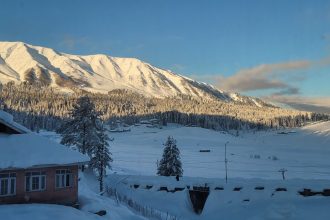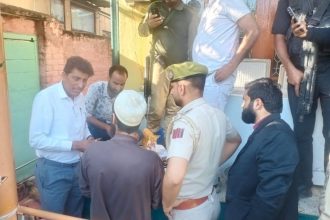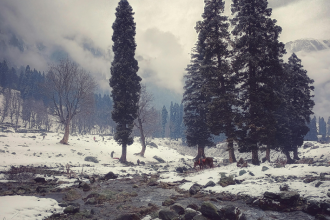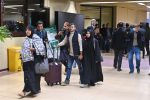Central Kashmir’s Budgam district is set for a fiery political battle as heavyweight contenders from the National Conference (NC), Bharatiya Janata Party (BJP), Peoples Democratic Party (PDP), and several independent candidates filed their nomination papers on Monday at the District Election Office. The Budgam by-poll, scheduled for November 11, has turned into a contest charged with legacy, loyalty, and shifting aspirations. Counting will take place on November 14, bringing an end to what many expect to be one of the most closely watched races in the region.
According to the Election Commission, the official notification was issued on October 13, nominations closed on October 20, and scrutiny will be conducted on October 22, with October 24 as the final date for withdrawal.
Among the main contenders, the NC has fielded Aga Syed Mehmood Al-Mousavi, a veteran Shia leader; the BJP is banking on Aga Syed Mohsin Mosvi; and the PDP is represented by Aga Syed Muntazir Mehdi, who had earlier contested against Chief Minister Omar Abdullah.
A total of 19 candidates are in the fray, turning the DC Office into a stage for political power displays. Chief Minister Omar Abdullah personally accompanied Aga Mehmood, while BJP’s Syed Mohsin drew support from senior party leaders, and PDP’s Aga Mehdi was joined by prominent figures Ghulam Nabi Lone and Waheed-ur-Rehman Para.
In a statement, Aga Mehmood emphasized the NC’s role in shaping Aga Ruhullah’s political career. “He’s like my own son,” Mehmood said. “Politics aside, we’ve been in touch. His statements reflect party issues, not personal opinions.”
CM Omar Abdullah echoed party unity, reaffirming that Aga Mehmood had “the full backing of the NC leadership.” Yet, the cracks in family and political alignments surfaced when Aga Ruhullah, through a post on X, clarified that his loyalty lies with his “conscience and principles,” subtly distancing himself from Mehmood’s remarks.
Meanwhile, Aga Muntazir Mehdi (PDP) criticized both NC and BJP, accusing them of neglecting youth, employment, and grassroots governance. “People are losing faith in traditional politics,” he declared. “We will rebuild trust by focusing on Budgam’s real issues — not rhetoric.”
This election is more than a contest of parties — it’s a test of the NC’s internal strength, a challenge to the BJP’s outreach, and a revival opportunity for the PDP. With 1.26 lakh voters spread across rural and urban belts, Budgam’s outcome may well shape the tone of Kashmir’s next political chapter.
Security forces have already classified Budgam as “sensitive but manageable,” and voter awareness drives are ongoing to ensure a high turnout.
But beyond the political noise, this by-election carries a deeper story — one about family, faith, and the fight for relevance in a region hungry for real leadership. In the end, Budgam’s people will decide not just who wins a seat, but who truly listens to their voice.








